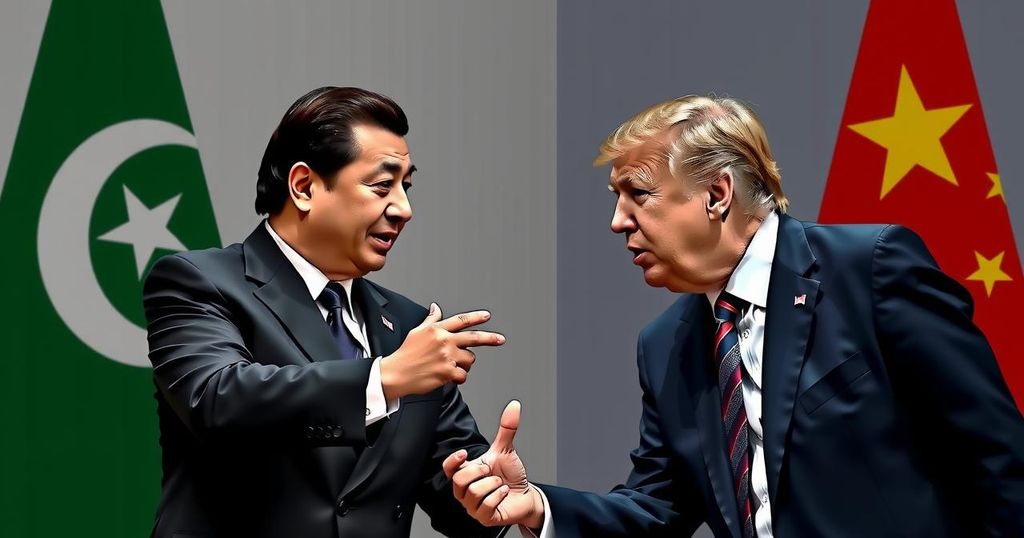Donald Trump’s recent election victory raises questions about its impact on US-Pakistan relations, particularly for former PM Imran Khan, who hopes for favorable treatment. Analysts suggest that Pakistan is unlikely to be a major priority for Trump’s administration, with China’s influence complicating Islamabad’s geopolitical strategy. The overall future of the relationship remains uncertain, demanding careful observation.
In the wake of Donald Trump’s recent presidential election victory, former Pakistani Prime Minister Imran Khan extended his congratulations, highlighting the potential for improved US-Pakistan relations. Khan, currently imprisoned, indicated hopes that Trump might advocate for his release. However, analysts suggest that while Khan’s position might provoke some attention, Pakistan is unlikely to be a priority for Trump’s administration. The dynamics between the US and Pakistan may be influenced more significantly by China, as Pakistan remains economically tethered to its long-time ally. With concerns about reduced foreign aid and increasing dependence on China, Pakistan may need to navigate its relationships carefully. Trump’s administration is anticipated to view Pakistan through the lens of its relationship with China, potentially complicating Islamabad’s international posture. Furthermore, experts caution that Pakistan’s significance to the US may wane as the new administration addresses more pressing issues. Domestic politics in Pakistan are unlikely to feature prominently in Trump’s foreign policy agenda, which will likely focus on relations with China and other global concerns. Relations between the two countries, shaped through a lens of geopolitical rivalry, will merit close observation as Trump’s presidency unfolds. Overall, the future of US-Pakistan ties remains uncertain, and while the Pakistani leadership expresses optimism regarding Trump’s administration, substantial shifts in policy or engagement are improbable.
The article discusses the implications of Donald Trump’s victory in the US presidential election for US-Pakistan relations, particularly in the context of the ongoing political challenges facing former Prime Minister Imran Khan. Despite Khan’s hopes for a favorable US approach, analysts emphasize that Pakistan is unlikely to be a key focus for Trump’s administration. The relationship with China also plays a critical role, as Pakistan’s economic dependence on China may affect its strategic decisions moving forward. The article provides insights into how these geopolitical factors may influence interactions between the US and Pakistan in the near future.
In summary, the political landscape surrounding US-Pakistan relations may face challenges as Trump assumes office again. Although there are hopes from Khan’s side for intervention, the prevailing sentiment among experts is that Pakistan will not be a key priority. Additionally, growing ties with China may further complicate Pakistan’s engagement with the US, leading to a cautious approach from the incoming administration. The evolving dynamics will require ongoing scrutiny as both nations navigate this complex geopolitical environment.
Original Source: www.aljazeera.com







